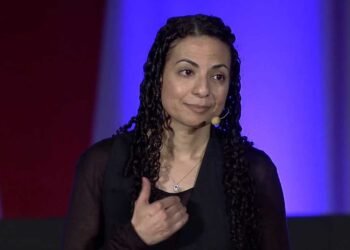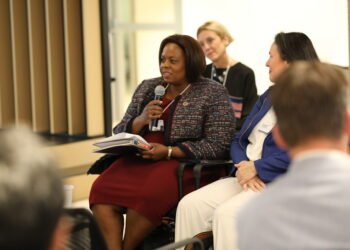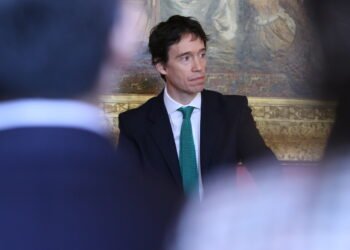What if the single-minded pursuit of profit is actually bad for business? This question lies at the core of Emmanuel Faber’s revolutionary approach to leadership.
Born in 1964, this French businessman graduated from HEC Paris in 1986. He became a transformative figure during his time as CEO and Chairman of Danone.
Faber championed a new model of capitalism that put purpose alongside profit. He believed companies should serve people and the planet, not just shareholders.
His work integrated social and environmental objectives into the business core. This meant measuring success beyond earnings per share.
Though his departure from Danone was controversial, his influence continues. He now chairs the International Sustainability Standards Board and works with Astanor Ventures.
Faber’s story challenges leaders to rethink their business model. He shows how economic success can align with positive change for the world.
Key Takeaways
- Emmanuel Faber redefined business leadership by integrating sustainability into core operations
- His approach challenged traditional profit-only metrics like earnings per share
- He transformed Danone’s food system to focus on health and climate impact
- Faber’s work continues through international sustainability standards and venture capital
- His leadership demonstrates how companies can serve people and planet alongside profit
- He represents a growing movement toward stakeholder capitalism in the business world
- Faber’s controversial departure shows the tension between activists and traditional shareholders
Introduction: A Visionary Leader in Sustainable Business
The path to redefining capitalism starts with unexpected professional beginnings. Emmanuel Faber’s journey toward sustainable business leadership began with diverse experiences that shaped his unique perspective.
Early Life and Educational Foundation
After graduating from HEC Paris in 1986, Faber began building his business foundation. His education provided the analytical framework he would later use to challenge traditional models.
This prestigious business school gave him tools to rethink company objectives. He learned to look beyond short-term earnings per share metrics.
Formative Professional Experiences
Faber started at Bain & Company, learning consulting strategies. He then moved to Barings Bank, gaining financial expertise.
In 1993, he joined Legris Industries as Administrative and Financial Director. This role gave him hands-on operational experience with real products and teams.
His promotion to general manager in 1996 marked significant growth. He learned to balance shareholder expectations with long-term company health.
These early years developed his stakeholder-oriented perspective. He saw how businesses could serve people beyond just generating profit.
A pivotal moment came in 2009 at the World Social Forum in Belém. This exposure to social issues deeply influenced his business philosophy.
These experiences created the foundation for his future work. They prepared him for the complex leadership challenges he would face at Danone.
His multidisciplinary background proved invaluable. It allowed him to develop innovative approaches that would change the food industry.
This early career period shaped his belief that companies should serve broader objectives. It showed how business could drive positive change in the world.
Emmanuel Faber’s Rise Through Danone’s Leadership Ranks
Faber’s journey through Danone’s executive ranks demonstrated how traditional business roles could be reimagined for greater impact. His progression showed that leadership development could integrate financial expertise with social purpose from the beginning.
Initial Roles: Finance and Asia-Pacific Operations (1997-2007)
Faber joined the food company in 1997 as head of Finance, Strategies and Information Systems. This role gave him deep insight into the company’s core operations.
He became Chief Financial Officer in 2000, overseeing financial strategy across the organization. The board appointed him to their ranks in 2002, recognizing his strategic vision.
His Asia-Pacific leadership from 2005-2007 expanded his global perspective on the food system. This experience exposed him to diverse markets and consumer needs.
These years built his credibility with shareholders while maintaining focus on broader objectives. He learned to balance short-term results with long-term company health.
Deputy CEO and Board Leadership (2008-2014)
Faber became Deputy CEO in 2008, taking responsibility for major corporate functions. His role included oversight of Finance and Human Resources across global teams.
He was appointed Vice-Chairman of the board in 2011, increasing his governance influence. This position allowed him to shape the company’s strategic direction more directly.
Parallel to his corporate work, he co-chaired Action Tank “Business and Poverty” starting in 2010. This initiative addressed social challenges through business solutions.
From 2011-2018, he chaired the Strategic Guidance Committee of IEDES, focusing on development work. These roles kept social mission at the core of his leadership approach.
This multifaceted experience prepared him for comprehensive CEO responsibilities. It demonstrated how business leadership could serve people and planet alongside profit.
Transformative Leadership as Danone CEO
Taking the helm of a global food company required balancing immediate financial demands with long-term vision. The new leader faced the challenge of maintaining growth while deepening the company’s social commitments.
Assuming Leadership and Continuing the Dual Mission
In October 2014, he became chief executive officer succeeding Franck Riboud. This transition marked a commitment to preserving the dual economic and social mission.
The board recognized his unique ability to balance profit with purpose. He maintained the company’s historical focus on health and sustainability.
Three years later, he assumed the chairman role in addition to CEO responsibilities. This consolidation of leadership authority enabled faster decision-making.
His April 2019 term renewal demonstrated board confidence in his direction. Shareholders supported his continued transformation of the food system.
This leadership approach maintained the company’s core values while driving innovation. It proved that business success could align with positive change.
Strategic Acquisitions and Global Expansion
The 2017 WhiteWave acquisition represented a major strategic move. This purchase made the company the world leader in plant-based products.
This alignment with health-focused objectives strengthened their market position. It demonstrated how growth could serve both people and planet.
During the COVID-19 crisis, he reduced his compensation by 30%. This decision reflected his commitment to shared sacrifice and ethical leadership.
Global expansion continued under his guidance while maintaining social objectives. Each market entry considered environmental impact and community benefit.
Strategic decisions consistently balanced business growth with broader goals. The company’s product portfolio evolved to meet changing consumer values.
This period proved that stakeholder capitalism could deliver financial results. It showed how companies could serve multiple objectives simultaneously.
Pioneering Sustainable Business Practices
True innovation in business comes when companies measure what truly matters. The most significant changes happened when leaders decided to track impact alongside profit.
This approach transformed how success was measured across the industry. It showed that financial results could include environmental responsibility.
Implementing Carbon-Adjusted EPS Metric
The Carbon-Adjusted EPS metric changed how the company reported success. This new measurement included climate impact in financial results.
Traditional earnings per share only showed monetary performance. The new metric revealed the environmental cost of that performance.
This innovation made climate responsibility part of core business reporting. It connected financial success with planetary health.
Danone became the only publicly traded company reporting scope-3 CO2-adjusted earnings. This comprehensive approach considered the entire product lifecycle.
Danone’s Transition to “Entreprise à Mission” Status
In 2020, shareholders overwhelmingly approved a historic change. With 99% support, the company became an “Entreprise à Mission.”
This legal status embedded social and environmental objectives into the company’s constitution. It made purpose equal to profit in the corporate structure.
Leadership declared they had “toppled one statue of Milton Friedman.” This symbolized rejecting profit-only capitalism.
The change operationalized sustainability within the company’s legal framework. It ensured future leaders would maintain these commitments.
CODES Leadership Framework Development
The CODES framework guided every aspect of company culture. This five-part system shaped recruitment, development, and rewards.
Create meaningful future focused on long-term vision beyond quarterly results. Open connections emphasized transparent relationships with all stakeholders.
Drive sustainable results balanced financial performance with positive impact. Empower teams gave employees ownership of both business and social outcomes.
Self-aware leadership encouraged constant reflection and improvement. This comprehensive approach influenced how every team member approached their work.
The framework positioned the company as an ESG-integrated business model. It showed how purpose could drive performance across the organization.
These pioneering practices demonstrated that business could serve people and the planet. They provided a blueprint for other companies seeking meaningful change.
Global Initiatives and Industry Influence
Business leadership often extends beyond corporate walls into global movements. The most effective leaders create change that transforms entire industries.
During his renewed term as chairman and CEO, this visionary expanded his impact worldwide. He leveraged his position to drive systemic change across multiple sectors.
Three major coalitions emerged from his work during this period. Each addressed critical challenges facing the modern business world.
Consumer Goods Forum Co-Chairmanship
June 2019 marked a significant industry recognition of his leadership approach. His appointment as Co-Chairman of the Consumer Goods Forum positioned him at the forefront of retail transformation.
This role allowed him to influence hundreds of major companies simultaneously. He helped shape standards for sustainable practices across global supply chains.
The Forum became a platform for advancing purpose-driven business models industry-wide. It created new benchmarks for environmental and social responsibility.
His leadership emphasized collaboration over competition among rival companies. This cooperative approach accelerated change faster than any single organization could achieve.
One Planet Business for Biodiversity Coalition
At the September 2019 UN Climate Action Summit, he launched another critical initiative. The One Planet Business for Biodiversity Coalition addressed urgent ecological challenges.
This coalition brought together major companies from the food and agriculture sectors. They committed to protecting and restoring biodiversity within their operations.
The initiative focused on practical solutions rather than theoretical discussions. Member companies implemented concrete changes to their production methods and sourcing practices.
This work demonstrated how business could actively regenerate natural systems rather than simply reducing harm. It represented a shift from defensive to offensive environmental strategies.
G7 Business for Inclusive Growth Initiative
French President Emmanuel Macron recognized his unique ability to bridge business and social objectives. In August 2019, he received a presidential mandate to establish the G7 Business for Inclusive Growth coalition.
The Organisation for Economic Co-operation and Development sponsored this important work. It focused on addressing inequality through business-led solutions.
The initiative specifically targeted opportunity gaps, regional disparities, and gender inequalities. It developed practical frameworks that companies could implement immediately.
His participation in the UK G7 Impact Taskforce further expanded this work. Simultaneously, his role on the Club of Rome’s Transformational Economics Commission provided academic depth to practical solutions.
These roles collectively positioned him as a leading architect of new economic models that serve all people. They demonstrated how business leadership could address society’s most pressing challenges.
The timing of these appointments during his renewed leadership term was strategically significant. It amplified his influence precisely when he had maximum credibility within the business community.
These global initiatives created lasting change beyond any single company’s efforts. They established new standards that continue to guide the industry toward more responsible practices.
The 2021 Ouster and Its Implications
Even the most visionary leaders face challenges when their philosophy conflicts with traditional expectations. The dramatic leadership change at Danone revealed deep divisions about corporate purpose.
This event became a case study in modern corporate governance tensions. It showed how activist investors could challenge even well-regarded executives.
Activist Shareholder Pressure
The board made its decision on March 14, 2021 after mounting pressure. Several large investors had expressed concerns about financial performance.
These shareholders focused heavily on traditional metrics like earnings per share. They argued the company needed more immediate financial results.
This pressure highlighted the ongoing tension between different investor priorities. Some wanted faster returns while others supported long-term vision.
The departure represented a victory for those favoring conventional business models. It showed that activist campaigns could still reshape company leadership.
Short-Term vs Long-Term Business Philosophy Conflict
The fundamental disagreement centered on how to measure success. One side prioritized quarterly earnings and stock performance.
The other believed in building value through sustainable practices over time. This conflict reflected broader debates happening across the business world.
Compensation changes had already signaled a different approach to leadership rewards. The CEO had reduced his own pay during the COVID crisis by 30%.
This pay cut demonstrated commitment to shared sacrifice during difficult times. Earlier compensation had ranged from €3.9 million to €4.82 million before decreasing.
The philosophy difference went beyond numbers to core business objectives. It questioned whether companies should serve multiple stakeholders or just shareholders.
Industry Reactions and Legacy Assessment
Major publications immediately recognized the significance of this leadership change. Forbes described him as a leading promoter of stakeholder capitalism.
Time magazine noted his special status among environmentalists and climate activists. These assessments highlighted his influence beyond traditional business circles.
The business community watched carefully to see how Danone would maintain its social mission. Many wondered if the company’s purpose-driven model would continue.
This event became a reference point for discussions about ESG implementation challenges. It showed how difficult transformative change could be in public companies.
The immediate legacy assessment recognized his groundbreaking work on sustainable business practices. His tenure had introduced innovative concepts like carbon-adjusted earnings metrics.
Industry observers noted the historical significance of his efforts to balance profit with purpose. The departure underscored the ongoing evolution of modern capitalism.
Conclusion: Faber’s Continuing Impact on Sustainable Business
Some leaders leave companies but continue shaping entire industries. Emmanuel Faber’s post-Danone work proves that sustainable business leadership extends beyond any single role.
He joined Astanor Ventures in October 2021, focusing on agritech investments. This move keeps him at the forefront of food system innovation.
Later that year, he became chairman of the International Sustainability Standards Board. This position allows him to influence global corporate reporting practices.
His book “Chemins de traverse” won the Christian Humanism Prize. It reflects the same philosophy he applied in business.
His personal life as a rock climber and father of three informs his professional approach. This balance between risk and responsibility defines his leadership style.
Faber’s story demonstrates how one person can redefine business objectives. His work continues inspiring leaders to build companies that serve people and planet.
FAQ
What is Emmanuel Faber best known for in the business world?
He is best known for his leadership as CEO of Danone, where he championed sustainable business practices and integrated social and environmental objectives into the company’s core strategy.
What was the innovative financial metric Faber introduced at Danone?
He pioneered the carbon-adjusted earnings per share metric, which measured financial performance while accounting for the company’s carbon footprint, aligning profit with planetary health.
Why was Faber’s tenure as Danone CEO controversial among shareholders?
Some activist investors argued that his focus on long-term sustainability goals came at the expense of short-term financial returns and share price performance, leading to his eventual ouster.
What does “Entreprise à Mission” status mean for a company like Danone?
This French legal status signifies a company has formally embedded social and environmental purpose into its corporate bylaws, making these objectives legally binding alongside profit generation.
How did Faber influence the broader food industry beyond Danone?
Through roles like co-chairing the Consumer Goods Forum, he advocated for industry-wide sustainable practices, biodiversity protection, and more inclusive economic growth models.
What is Faber doing after his departure from Danone’s leadership?
He continues to advance sustainable business through initiatives like Astanor Ventures, focusing on impact investing in regenerative agriculture and food system transformation.
How did Faber’s background prepare him for sustainable business leadership?
His early career in finance and operations across Asia-Pacific provided practical business experience, while his personal values drove his commitment to purpose-driven capitalism.





